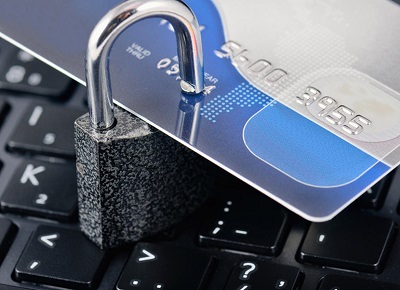Tips to protect your bank account from fraud
Constantly improving banking technologies provoke сonstantly improving types of frauds. Theft of identity allows intruders use one’s stolen data (banking card information, social insurance, cell number or home address) for online shopping or to issue a new credit card.

Thief can inquire personal details both online and offline by stealing printed documents with your data. There are several simple tips, which will help protect your money and prevent undesirable consequences:
1) Share your personal data wisely
When any organisation collects driving licence number, passport details or contact information it is crucial to ensure that it would be protected and used only for intended purpose.
Personal information can be disclosed through email messages or telephone calls only when you know the recipient and the channel of communication is safe. All your logins, passwords and credit card numbers can only be shared with those you really trust.
Keeping your SIN (social insurance number) private is essential because it can be involved in many fraudulent schemes. Don't mention it when your are not obliged by the law.
2) Personal Identification Number should stay personal
If someone asks for your PIN you are definitely dealing with a fraud. No one, including online-shops, bank employees and even police have any right to ask this question.
3) Secure printed data
Banking receipts, statements and other documents, which disclose your personal data should be kept in a safe place. If you want to throw them away, it makes sense to tear them into pieces or burn. And don't forget to take your receipts after using an ATM.
Try to check your mailbox regularly and remove incoming letters as soon as possible to avoid possible thefts. If you changed actual address, make sure your letters to be re-routed.
4) Use online bank services on safe computer
Not only Internet banking has made your lives easier it also opened great opportunities for thefts, so taking your time to ensure that your computer is really protected by antivirus system is an obligatory step.
5) Inspect your statements
Regularly look through your banking accounts and make sure that all operations and fees really took place. Absence of transaction statement is a reason for alarm as well as extra operations with your account without you knowing.
If your credit reports and home bills don't reach you in time, call the organisations to find out whether the documents are just lost or redirected to third parties. Tracking your transactions separately from telephone and online-banking services can be very helpful.
You can apply for one free credit report copy to one of the corresponding agencies once a year to monitor your personal financial privacy and ensure the entire obligations are authorised.
6) Don't leave cards, cheques and ID in public places
Remember that some frauds can be carried out by credit card number without obtaining your physical card, so keeping the numbers private is essential.
7) Travel light
Take only the necessary personal ID and credit/debit cards to your trips to avoid spoiling your vacation dealing with undesirable consequences from possible loss or theft.
If you found this helpful, don’t miss out on "Debt write-off and forgiveness" for more insights!

